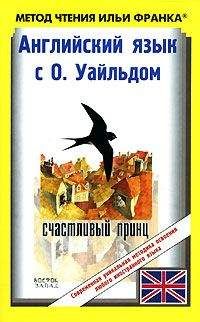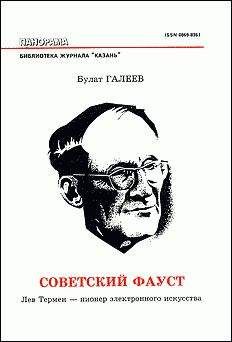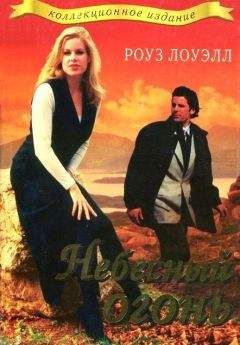`You are the rudest person (а вы — самый грубый человек) I ever met (которого я когда-либо встречала),' said the Rocket, `and you cannot understand (и вы не можете понять) my friendship for the Prince (моего дружеского расположения к Принцу; friend — друг, friendship — дружба, дружелюбие).'
`Why, you don't even know him (как же, вы его даже не знаете),' growled the Roman Candle (проворчала Римская Свеча; to growl — рычать, ворчать).
`I never said I knew him (я вовсе и не говорила, что знаю его; to know (knew, known)),' answered the Rocket (ответила Ракета). `I dare say (полагаю; dare — сметь, отважиться) that if I knew him (что если бы я знала его) I should not be his friend at all (я бы вовсе не была его другом). It is a very dangerous thing (это очень опасно: «опасное явление»; danger — опасность, угроза) to know one's friends (знать своих друзей).'
friendship ['frend∫ip] growl [graυl] dangerous ['deindζərəs]
`You certainly are!' cried the Bengal Light. `In fact, you are the most affected person I ever met.'
`You are the rudest person I ever met,' said the Rocket, `and you cannot understand my friendship for the Prince.'
`Why, you don't even know him,' growled the Roman Candle.
`I never said I knew him,' answered the Rocket. `I dare say that if I knew him I should not be his friend at all. It is a very dangerous thing to know one's friends.'
`You had really better keep yourself dry (вам бы лучше, действительно, /постараться/ остаться сухой),' said the Fire-balloon (сказал Огненный Шарик). `That is the important thing (это самое важное /дело/).'
`Very important for you (очень важное для вас), I have no doubt (не сомневаюсь: «у меня нет никаких сомнений»),' answered the Rocket (ответила Ракета), `but I shall weep if I choose (но я буду рыдать, если я этого захочу; to choose — выбирать; предпочитать);' and he actually burst into real tears (и она действительно разразилась самыми настоящими слезами; to burst — взрываться; давать выход чувствам), which flowed down his stick (которые полились по ее палке; to flow — течь, литься) like raindrops (как капли дождя; rain — дождь, drop — капля, слезинка), and nearly drowned two little beetles (и чуть не затопили двух маленьких жучков; nearly — почти, едва), who were just thinking (которые как раз подумывали) of setting up house together (о том, чтобы начать вести /вместе/ семейную жизнь: «устроить вместе домик»; to set up — помещать, основывать, учреждать), and were looking for a nice dry spot (и подыскивали хорошее сухое местечко; spot — пятно; место) to live in (для жилья: «в котором жить»).
important [im'pO:t(ə)nt] actually ['ækt∫(υ)əli]
`You had really better keep yourself dry,' said the Fire-balloon. `That is the important thing.'
`Very important for you, I have no doubt,' answered the Rocket, `but I shall weep if I choose;' and he actually burst into real tears, which flowed down his stick like raindrops, and nearly drowned two little beetles, who were just thinking of setting up house together, and were looking for a nice dry spot to live in.
`He must have a truly romantic nature (у нее, должно быть, действительно романтичная натура; truly — правдиво, верно, по-настоящему),' said the Catharine Wheel (сказало Огненное Колесо), `for he weeps (оттого, что она плачет) when there is nothing at all (когда вовсе нет ничего) to weep about (о чем плакать = когда и плакать не о чем);' and she heaved a deep sigh (и оно глубоко = тяжело вздохнуло: «издало глубокий/тяжелый вздох»; to heave — поднимать; издавать, испускать стон, вздох), and thought about the deal box (и подумало о сосновом ящике; to think (thought)).
But the Roman Candle and the Bengal Light were quite indignant (но Римская Свеча и Бенгальский Огонь пришли в совершеннейшее негодование: «были совершенно возмущенные»), and kept saying (и повторяли: «продолжали говорить»; to keep + причастие I — означает продолжение действия, выраженного причастием), `Humbug (вздор/чушь; humbug — обман, надувательство, вздор)! Humbug!' at the top of their voices (во все горло/во весь голос; top — верхушка; высшая степень). They were extremely practical (они были чрезвычайно практичными), and whenever they objected to anything (и каждый раз, когда они не одобряли что-либо; to object — возражать; не любить, не одобрять) they called it humbug (они называли это «вздором»).
heave [hi:v] sigh [sai] humbug ['hλmbλg] object [əb'dζekt]
`He must have a truly romantic nature,' said the Catharine Wheel, `for he weeps when there is nothing at all to weep about;' and she heaved a deep sigh, and thought about the deal box.
But the Roman Candle and the Bengal Light were quite indignant, and kept saying, `Humbug! humbug!' at the top of their voices. They were extremely practical, and whenever they objected to anything they called it humbug.
Then the moon rose (затем взошла луна; to rise (rose, risen) — восходить) like a wonderful silver shield (похожая на удивительный серебряный щит); and the stars began to shine (и засияли звезды: «и звезды начали сиять»), and a sound of music came from the palace (и звуки музыки донеслись: «пришли» из дворца; to come (came, come)).
The Prince and Princess were leading the dance (Принц и Принцесса танцевали впереди всех: «вели танец»; to lead (led) — вести, руководить, занимать первое место). They danced so beautifully (они танцевали настолько великолепно/прекрасно) that the tall white lilies (что высокие белые лилии) peeped in at the window (заглядывали в окно) and watched them (и наблюдали за ними), and the great red poppies (и большие красные маки) nodded their heads (кивали своими головками) and beat time (и отбивали такт; time — время; такт, размер, ритм).
Then ten o'clock struck (затем пробило десять часов; to strike (struck, stricken) — ударять, бить), and then eleven (затем одиннадцать), and then twelve (и затем двенадцать), and at the last stroke of midnight (и с последним ударом /возвещавшим/ полночь) every one came out on the terrace (все: «каждый» вышли на террасу), and the King sent for the Royal Pyrotechnist (и Король послал за Королевским Пиротехником; to send (sent) — посылать, вызывать).
shield [∫i:ld] poppy ['pOpi] terrace ['teris]
Then the moon rose like a wonderful silver shield; and the stars began to shine, and a sound of music came from the palace.
The Prince and Princess were leading the dance. They danced so beautifully that the tall white lilies peeped in at the window and watched them, and the great red poppies nodded their heads and beat time.
Then ten o'clock struck, and then eleven, and then twelve, and at the last stroke of midnight every one came out on the terrace, and the King sent for the Royal Pyrotechnist.
`Let the fireworks begin (пусть начинают фейерверки),' said the King; and the Royal Pyrotechnist made a low bow (и Королевский Пиротехник низко поклонился: «отвесил низкий поклон»; to make (made)), and marched down to the end of the garden (и отправился в /дальний/ конец сада; to march — маршировать, идти размеренным шагом). He had six attendants with him (с ним было шесть помощников; to attend — посещать; ухаживать, обслуживать, attendant — сопровождающее лицо; обслуживающий персонал, слуги), each of whom carried a lighted torch (каждый из которых нес по зажженному факелу; to light (lit, lighted) — зажигать, освещать) at the end of a long pole (на длинном шесте: «на конце длинного шеста»; pole — столб, шест, жердь).
It was certainly a magnificent display (это действительно было великолепное зрелище; display — показ, демонстрация).
march [mα:t∫] attendant [ə'tendənt] magnificent [mæg'nifis(ə)nt]
`Let the fireworks begin,' said the King; and the Royal Pyrotechnist made a low bow, and marched down to the end of the garden. He had six attendants with him, each of whom carried a lighted torch at the end of a long pole.
It was certainly a magnificent display.
Whizz (зззззззззз)! Whizz (whizz — свист /рассекаемого воздуха/)! went the Catharine Wheel (свистело Огненное Колесо; to go (went, gone) — идти, работать; издать внезапный отчетливый звук), as she spun round and round (вращаясь и вращаясь /вокруг/; to spin (spun) — крутить, вертеть).
Boom (бум)! Boom (boom — гул, рокот грома, колокола, выстрела)! went the Roman Candle (загудела: «пошла» Римская Свеча). Then the Squibs danced all over the place (затем по всему пространству = повсюду затанцевали Шутихи; place — место), and the Bengal Lights made everything look scarlet (и Бенгальские Огни окрасили все в алый цвет: «заставили все вокруг казаться алым»; to make (made) — делать; to look — смотреть, выглядеть, казаться).
`Good-bye,' cried the Fire-balloon (закричал Огненный Шарик), as he soared away (стремительно взмыв: «когда он набрал высоту») dropping tiny blue sparks (роняя крошечные синие искорки; to drop — капать; ронять, падать).



